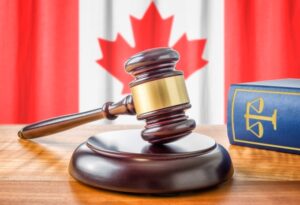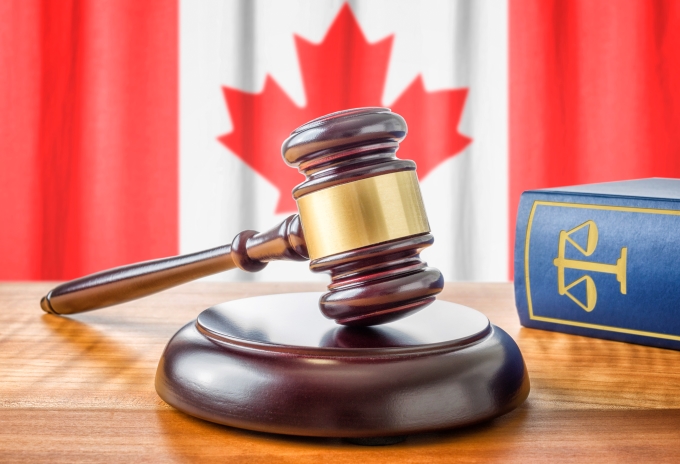Refugee Appeal in Toronto

Refugee Appeal in Toronto: Navigating the Process
Introduction
Canada is globally recognized for its commitment to providing refuge to individuals fleeing persecution, conflict, and violence. Refugee claims are a critical part of this commitment, offering individuals the opportunity to start anew in a safe environment. However, not all claims are accepted in the first instance. When a refugee claim is denied, individuals can appeal the decision through the Refugee Appeal Division (RAD) of the Immigration and Refugee Board of Canada (IRB).
For refugees in Toronto, the appeal process can be a lifeline. This guide outlines the refugee appeal process, eligibility criteria, steps involved, and resources available to appellants in Toronto.
1. Overview of Refugee Appeals: Refugee Appeal in Toronto
A refugee appeal is a mechanism allowing individuals to challenge the rejection of their refugee claim. The Refugee Appeal Division (RAD) reviews the initial decision to determine whether it was reasonable, based on the evidence and applicable laws.
a) Who Can Appeal?
Not all individuals are eligible to appeal a refugee decision. Those eligible include:
- Refugee claimants whose claims were rejected by the Refugee Protection Division (RPD).
- Claimants who have not filed multiple claims or been declared a Designated Foreign National (DFN).
b) Who Cannot Appeal?
The following individuals are ineligible to appeal to the RAD:
- Those who withdrew or abandoned their refugee claims.
- Individuals whose claims were rejected because they were deemed manifestly unfounded or had no credible basis.
- Claimants from designated countries of origin (DCOs).
2. Grounds for Refugee Appeals: Refugee Appeal in Toronto
The RAD reviews appeals based on specific grounds, which may include:
a) Errors in Law
The appellant can argue that the RPD made a legal error in its decision, such as misinterpreting the definition of a refugee or failing to consider relevant legal principles.
b) Errors in Fact
The appellant can demonstrate that the RPD made factual errors, such as disregarding or misunderstanding critical evidence.
c) Procedural Fairness
Appeals can challenge violations of procedural fairness, such as lack of adequate interpretation services, unfair treatment during hearings, or failure to consider the appellant’s submissions fully.
d) New Evidence
The RAD may accept new evidence that was not available at the time of the RPD hearing and that could have affected the outcome of the case.

3. Steps in the Refugee Appeal Process
The refugee appeal process involves several stages, each requiring meticulous preparation and adherence to deadlines.
a) Filing the Appeal
- The appeal must be filed within 15 calendar days of receiving the RPD decision.
- Appellants must submit a Notice of Appeal and supporting documents to the RAD.
b) Perfecting the Appeal: Refugee Appeal in Toronto
- Within 30 days of filing the Notice of Appeal, the appellant must provide a detailed written submission outlining the grounds for the appeal.
- This submission must include supporting evidence, legal arguments, and references to the RPD’s decision.
c) Review by the RAD
The RAD conducts a thorough review of the case. This review may be:
- Paper-Based: A decision is made based on the written submissions and evidence provided.
- Oral Hearing: In rare cases, the RAD may hold a hearing to address specific issues, such as the credibility of the claimant.
d) Decision
The RAD issues a written decision, which may:
- Allow the appeal and grant refugee protection.
- Dismiss the appeal, upholding the RPD’s decision.
- Return the case to the RPD for reconsideration.
4. Challenges in the Refugee Appeal Process
The refugee appeal process is complex and presents various challenges, including:
a) Strict Deadlines: Refugee Appeal in Toronto
Failure to meet the filing or submission deadlines can result in the dismissal of the appeal.
b) Evidentiary Requirements
Appellants must provide strong evidence to counter the RPD’s decision, which can be challenging if documentation is scarce or unavailable.
c) Legal Complexity
Understanding the nuances of Canadian refugee law requires expertise, making it essential for appellants to seek professional assistance.
d) Emotional and Financial Strain: Refugee Appeal in Toronto
The appeal process can be lengthy and stressful, particularly for individuals who have already endured significant hardship.

5. Legal and Community Support in Toronto
Toronto is home to numerous organizations and professionals that assist refugee claimants with their appeals.
a) Immigration Lawyers and Consultants
Hiring an experienced lawyer or licensed consultant can greatly improve the chances of a successful appeal. These professionals help with:
- Drafting and submitting legal arguments.
- Gathering and presenting evidence.
- Representing the appellant during oral hearings.
b) Legal Aid Ontario
Low-income appellants may qualify for legal aid, which provides funding for legal representation.
c) Settlement Agencies
Organizations such as IEC Immigration and Refugee Center offer assistance with:
- Navigating the refugee appeal process.
- Accessing interpretation services.
- Referrals to legal professionals.
d) Community and Advocacy Groups: Refugee Appeal in Toronto
Groups like the IEC Immigration and Refugee Center provide support and advocacy for refugee claimants.
6. Tips for a Successful Refugee Appeal
a) Act Quickly
Ensure that all deadlines are met for filing and submitting documents.
b) Seek Professional Assistance
Engaging a qualified immigration lawyer or consultant is crucial for navigating the complexities of the appeal process.
c) Provide Strong Evidence
Include detailed and well-documented evidence to support your claim, such as:
- Proof of persecution or risk in the home country.
- Medical reports, affidavits, or expert opinions.
d) Highlight Errors in the RPD Decision
Focus on identifying and articulating specific errors in the initial decision to strengthen your case.
7. Alternatives to Refugee Appeals: Refugee Appeal in Toronto
In some cases, individuals may need to explore alternatives if an appeal is not feasible or is unsuccessful.
a) Federal Court Judicial Review
If the RAD dismisses the appeal, appellants can apply for a judicial review at the Federal Court of Canada. This process examines whether the RAD’s decision was reasonable.
b) Pre-Removal Risk Assessment (PRRA)
Before removal from Canada, individuals may apply for a PRRA to demonstrate that they face significant risks if returned to their home country.
c) Humanitarian and Compassionate (H&C) Applications
An H&C application allows individuals to request permanent residency based on compelling humanitarian factors, such as family ties in Canada or the best interests of children.
8. Resources for Refugee Claimants in Toronto
a) Government Resources
- Immigration, Refugees, and Citizenship Canada (IRCC): Provides guidelines on refugee claims and appeals.
- Immigration and Refugee Board of Canada (IRB): Offers detailed information on the RAD process.
b) Non-Profit Organizations: Refugee Appeal in Toronto
- FCJ Refugee Centre: Supports refugee claimants with legal advice and settlement services.
- Sojourn House: Provides shelter and settlement services for refugees in Toronto.
c) Interpretation and Translation Services
Access to qualified interpreters and translators is essential for non-English-speaking appellants. Many organizations in Toronto provide free or low-cost services.
Conclusion
The refugee appeal process in Toronto is a critical mechanism for ensuring fairness and justice for individuals seeking protection. While the process is complex and challenging, it offers hope to those whose claims have been initially denied.
By understanding the appeal process, seeking professional assistance, and utilizing community resources, refugee claimants can effectively navigate their path toward safety and a new life in Canada. Toronto’s robust support network underscores the city’s dedication to upholding the values of compassion and inclusivity for those in need.
In case, if you need help with Refugee Appeal in Toronto or other legal support, please fill in application below or contact us directly.

